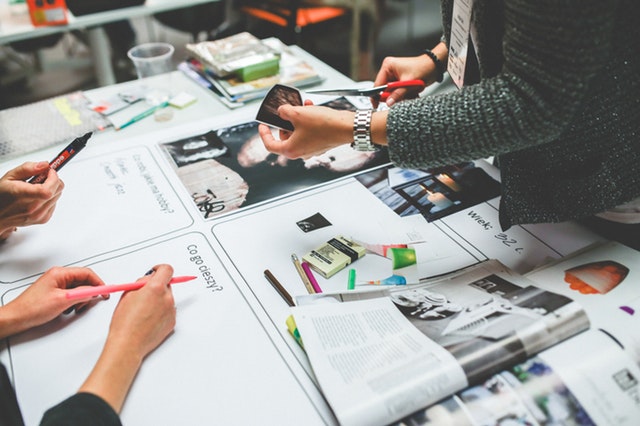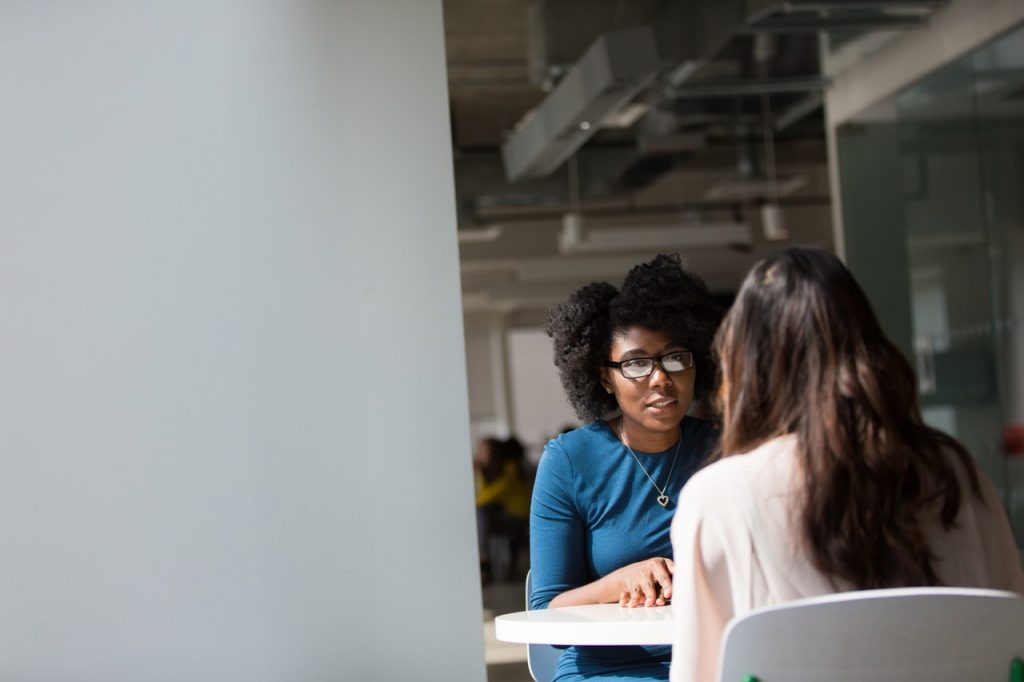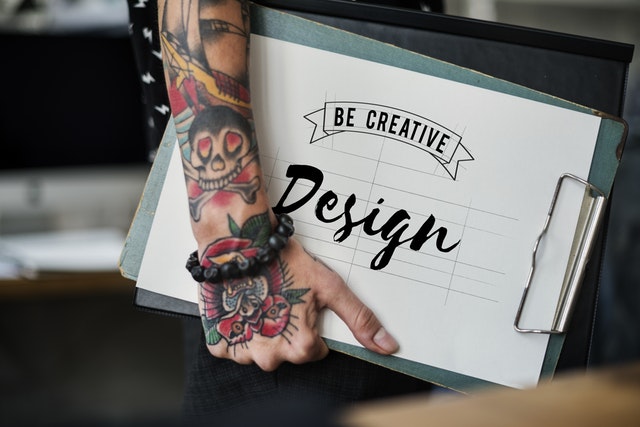What matters in interior design? Is it your artistic talent and passion for work? Or is it an ability to understand the goals of each design project, and meet them with your final work? Or perhaps your communication skills, and ability to persuade the customer to follow your suggestions and ideas?
Hard to say what matters the most, and perhaps each employer has their own opinion and preferences. This will mirror in the questions they will ask you in an interview.
Now we will look at some more common, and less common questions, and I will try to help you understand what they expect to hear from you. Enjoy!
Table of Contents
Why do you want to work as interior designer?
Do not say that you want to get this job because you’ve earned degree in interior design. You should look forward, not backward. You should show a desire to have this job, and not simply remark that you have to do it, after all the long years you’ve spent studying design or architecture…
Say that you love doing what interior designers do, the entire process–meeting with clients (or even finding new one), understanding their wishes (or even helping them to discover new one), translating them into interesting design concepts, and then turning these concepts to reality.
You can also say that you have good design skills (judging by previous experience), and believe that you will bring value to your employer/clients with your design work.
Why employment and not freelancing?
In truth you can earn more money (twice or even three times as much) working as a freelance interior designer. But obviously this has some drawbacks, and you should explain the interviewers why you prefer employment to a career of a freelance designer.
This question is very important, because they try to hire designers who won’t leave the company one year later, after they gained some experienced and feel ready to become their own bosses.
Perhaps the best answer is that you prefer to focus on the core of your job–communication with clients and working on designs, and do not want to hassle with accounting, marketing, competition, and all other stuff that belongs to a daily life of a freelancer.
May also interest you: Fashion designer interview questions.
Why do you want to work for our studio/company?
You have two good options here. First one is saying that you researched about their company, and like their principal line of design, and the sort of clients they have, and that it matches with your preferences. This is always a good reason for choosing one employer and not the another one.
Second one is more honest, or perhaps more business oriented. You can say that you like the location of work, the benefits they offer to employees, the working environment, the reputation of the company, or anything else that has caught your eye…
Tell us something about your previous design works.
One picture tells more than a thousand words. At least that’s the case with design. Take your portfolio out of your briefcase, and start showing your best works.
Note: If you do not have a portfolio yet, you can learn how to make one in our article: Portfolio in an interview.
Few things you should remember when talking about your design works:
- Always explain the goal you followed with each design (so they see that you design interior on purpose).
- Try to show works that relate (at least somehow) to the designs they do in the company (similar places, surroundings, etc).
- If something looks strange or unorthodox, explain why you opted for it in your design work.
Look around this office. What would you improve on our interior design?
You should always remember the three characteristics of an excellent design: functionality, safety, and beauty. Of course the value you should place on each from the three varies from one project to another.
Look around their office, and find things that could be done better. But you should focus mostly on functionality, since the choice of colors and shapes can reflect the personal tastes of your interviewers, and you definitely do not want to touch their ego.
Perhaps the windows could be bigger, or the table could be shaped and located differently, or they could use ergonomic chair, or the walls can be painted in a different way, or you may change organization of the furniture to make the place more spacious, etc, etc.
Special Tip: Download a full list of questions in a one page long PDF, and practice your interview answers anytime later:

Do you have experience with AutoCad and 3D Max?
Explain clearly how long you have been working with each software, and how it helped you in your work. You should actually mention also other tools you use while doing your designs.
If you have no experience with the program in question (they may use a specific software in their company), say that you are a quick learner, and good with computers. You should show confidence in your skills, and ensure them that you are ready to learn to work with anything they use in the company.
* Do not forget to check also: Graphic design interview questions and answers.
Imagine that a client rejected all your designs. What would you do?
Good designers understand the importance of a clear communication, and of a good relationship with the clients. Say that you would meet them in person, come back to the basics, and discuss their goals and expectations once again. You would also discuss the things which they didn’t like on your original works.
Then you would either show them how the designs you proposed met their goals, or work on a new design that would meet them (in a case that you originally misunderstood them, or they changed their mind).
In any case, you should demonstrate that you are not afraid of rejection, and do not mind reworking your designs.
Imagine that I was a client, and we were in an empty office, twenty square meters, which you should design an interior for. What would you do?
Ask questions. That is the key, the first thing to do before you can understand anything else.
Good designers do not inquire only about colors and pieces of furniture. They opt for a holistic approach. Questions such as:
- How will your average day look like in this office?
- Will you have visitors, or will you meet them in a different space?
- What atmosphere do you want this place to convey to people from outside?
- …
… should precede the questions about furniture and colors. Keep it on your mind while dealing with this role-play.
Other questions you may get in your interior designer interview
- What motivates you the most in work?
- Describe a conflict you had with one of your clients, about the design.
- How do you ensure to finalize your work on schedule?
- Have you ever had to collaborate with architects or tradespeople who were difficult to work with?
- What do you do to keep your knowledge of industry trends up to date?
- What is your opinion on sustainable design?
- Do you have your favorite designer? Why do you like their designs?
- Describe a time when you struggled to communicate something to your boss, colleague, or to a client. How did you manage to get your message over?
- Why should we hire you?
- What are three things you look for in an ideal job?
- What does quality mean to you?
- Tell us about a time when you used persuasion to successfully convince someone.
- Tell us one thing about yourself you wouldn’t want us to know.
Special Tip: If you experience anxiety, or do not know what you will say when facing these questions in your interior designer interview, have a look at our Interview Success Package. Multiple great answers to all tricky interview questions (including the dreaded behavioral questions) will make your life much easier in this interview. You will find some sample answers directly on the product page, so it makes sense to check it out even if you do not plan to purchase anything…
Final thoughts and next steps
Interview for a job of interior designer belongs to interviews with average difficulty. You won’t compete with many people for the job (unless you apply in a prestigious studio), and you can prepare for most questions in advance.
What is more, once you have a great portfolio, and know how to show the value you brought to your clients with your design works (while showing your portfolio to the interviewers), even above-average interview answers may suffice you to get this job. You won’t need the best of the best in this case….
Nonetheless, you should not underestimate your preparation. Read the questions once again, and try to answer each one. And do not forget to improve your portfolio. Once you do all of that, you will almost certainly succeed… I wish you good luck!
Matthew
May also interest you:
- Instructional designer interview questions.
- Graphic design interview – What are your strengths and weaknesses?
- Lowe’s interview questions.



